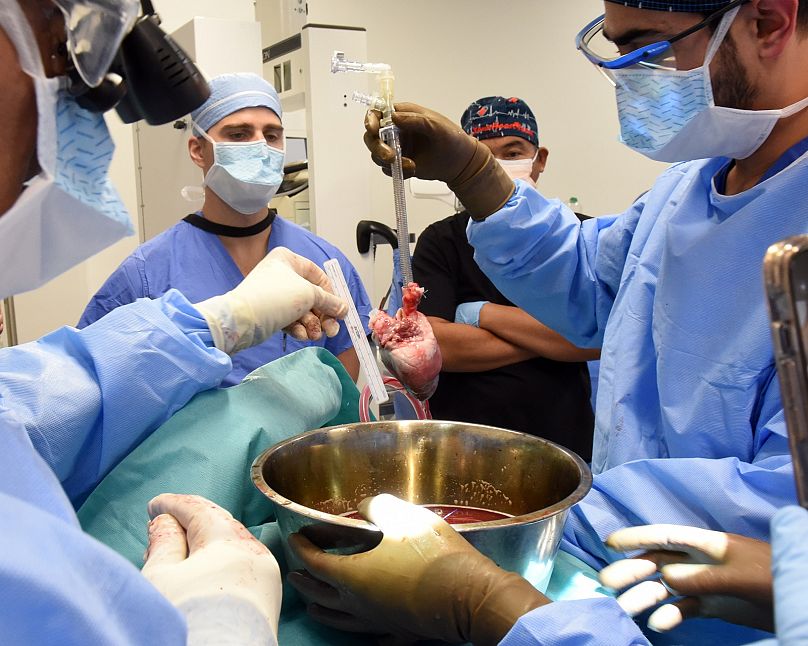Demand for human organs is higher than the number that are available for transplant. More than 150,000 Europeans were on a waiting list for organ transplants in 2018.
Lawrence Faucette, the second person in the world to receive a genetically modified pig's heart in an experimental transplant, has died.
The 58-year-old patient lived for nearly six weeks after receiving the transplant in mid-September.
“We mourn the loss of Mr Faucette, a remarkable patient, scientist, Navy veteran, and family man who just wanted a little more time to spend with his loving wife, sons, and family,” said Bartley Griffith, the patient's surgeon at the University of Maryland Medical Centre.
Before his death on October 30, Faucette was doing physical therapy and spending time with family.
His heart had started showing signs of rejection, a challenge with human organ transplants as well.
“Mr Faucette's last wish was for us to make the most of what we have learned from our experience, so others may be guaranteed a chance for a new heart when a human organ is unavailable," said Griffith in a statement.
"He then told the team of doctors and nurses who gathered around him that he loved us. We will miss him tremendously.”
Faucette had terminal heart disease when he became the world's second patient to receive a genetically modified pig's heart in September.
The first patient, David Bennett, also received a transplant at the University of Maryland Medical Centre. Like Faucette, he had been ineligible for a human heart transplant. He died two months after the experimental surgery.
In both cases, the US Food and Drug Administration (FDA) granted an emergency authorisation for the surgeries.
Transplanting animal organs into humans (a process known as xenotransplantation) comes with risks, including transferring an unknown pathogen from the animal or triggering a serious immune response.
Demand for human organs, however, is higher than the number that are available for transplant.
More than 150,000 Europeans were on a waiting list for organ transplants in 2018.
In the US, an estimated more than 6,000 people die each year before getting an organ transplant.
Muhammad Mohiuddin, director of the University of Maryland School of Medicine's cardiac xenotransplantation programme said: “We cannot express enough gratitude to Mr Faucette and his family for enabling us to continue to make significant advancements towards making xenotransplants a reality.
"Mr Faucette was a scientist who not only read and interpreted his own biopsies but who understood the important contribution he was making in advancing this field," he continued.
"As with the first patient, David Bennett, Sr., we intend to conduct an extensive analysis to identify factors that can be prevented in future transplants; this will allow us to continue to move forward and educate our colleagues in the field on our experience."












